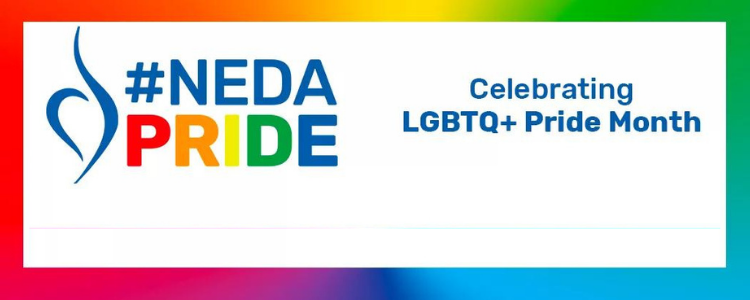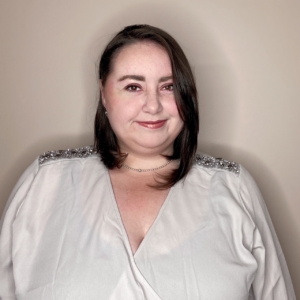The Connection Between my Eating Disorder and Sexual Orientation
I consider myself to be bi-curious, but could also consider myself to be bisexual or pansexual. The label isn’t the most important thing to me, or what I feel matters most. I am open to any experience that would involve me finding love in someone else — no matter their gender. I used to judge these feeings, but I don’t anymore because we love who we love.
My recovery from an eating disorder and sexual orientation coincide in some ways. I especially felt like I was questioning who I was attracted to in the depths of my eating disorder struggles. I felt very shameful that I was in a place of questioning, and I also grew up in a culture that often made fun of and shamed gay people. In some ways, I’m still in a place of questioning. The difference now is that I no longer harshly judge myself. As I embrace recovery, I embrace who I am.
I have purposely not put myself in situations where I could be in a relationship in the past because I wanted to work on my mental health. Not everyone does this or has to do this, but I felt it was important for me to find balance and purpose in my life before I committed to someone romantically.
I’m still hesitant to seek a relationship for a multitude of reasons, but I believe in the sentiment, “You’ll find love when you’re not looking for it.” My struggles with body image and an eating disorder unequivocally impacted if I would be open to a relationship. I was not comfortable with who I was in any way. I was in a stalemate with my body and mind for nearly a decade — I truly believed I was not good enough. This self-hatred clung onto me as much as I hated myself for being attracted to more than just men. I practice treating myself like I would a child or my good friend. In seeing myself through non-judgmental eyes, I break away the hate and shame.
To anyone uncertain about your identity, you are not alone. It’s so common and so human, although it may also feel foreign because we still do not talk about it enough. Heteronormative messaging from society suggests that we should feel ashamed and hide away. It makes sense to question or be unsure, especially when not every person is accepting of other’s sexuality; however, there are allies who want to see you happy and there are people in this community who understand.
Finding people who love and accept me in both my identity and eating disorders recovery has helped me reach the waters of healing. I work on mirroring the love I receive from my biggest supporters, and reflecting it onto myself in times I cannot see my self-love so clearly. We all need people in our corner, especially in recovery, and even more so when there’s still so much hatred and confusion for identifying as LGBTQ+. According to The Trevor Project’s National Survey on LGBTQ Youth Mental Health 2021, being accepted by at least one adult can decrease the risk of LGBTQ+ youth attempting suicide by 40%. I feel very lucky to have always had at least a few supportive people in my life who fought to help me see I deserved to be alive and feel better.
Questioning your sexuality without a doubt gives you space to identify as LGBTQ+. You are valuable in this community. There is no rush in finding who you are. Similarly, there is no rush to recover. We will find ourselves in our own time.
I’m an artist and studying to become an art therapist. I like to think of sexual identities in terms of painting. In order to get the correct color for a painting, you need to mix the right ones. In questioning our identities or being curious, perhaps we have not found the right tints and tones yet. Maybe the color is just a bit off. Perhaps if we are not able to come out yet, we are living in void of color, unable to be our true selves. Similarly, when we encourage people to express themselves just as they are, and create the colors that are right for them, they will find and emit that exact color they are meant to be; they will live in color. They are then free to live any color of the rainbow they identify with.
The roots of this community are just as important as the work we are doing now. We would not be here today without the past strides. The Stonewall riots and the work of (primarily black) trans women shaped the kinds of freedom we have today. Some notable trans women to read up on include Marsha P. Johnson, Sylvia Rivera, Lucy Hicks Anderson and Ava Betty Brown. Each played critical roles in advocating for LGBTQ+ rights. The book Black on Both Sides: A Racial History of Trans Identity by Dr. C Riley Snorton further discusses some of their roles. I am looking forward to educating myself more about the unapologetic activists who built the foundation for this community.
My hope is that we choose to love and accept whenever and wherever we can. Those who identify as LGBTQ+ are more likely than their straight peers to develop eating disorders or disordered eating habits. Recovery from an eating disorder and finding self acceptance as an LGBTQ+ person are possible; I am living proof of that. There are people out there who understand these struggles and want to see you alive and thriving. People of all genders, identities and struggles deserve to be accepted, respected and loved. Love is love.
Lexie Manion is a writer, artist, student and mental health advocate. She often writes about mental health and body acceptance topics, and shares her personal recoveries from mental illness. Lexie is working towards becoming an art therapist, as she has a deep love for creating art that reflects different emotions and experiences. Lexie strongly believes art and writing can be cathartic. She shares the messages that we are enough as we are and worthy of help. You can find more of her work at lexiemanion.com or follow her on Instagram at the handle @lexiemanion.





